Ted Moudis Associates conducted a thorough workplace strategy and programming effort to determined that an agile workplace model would best suit Mazars USA.
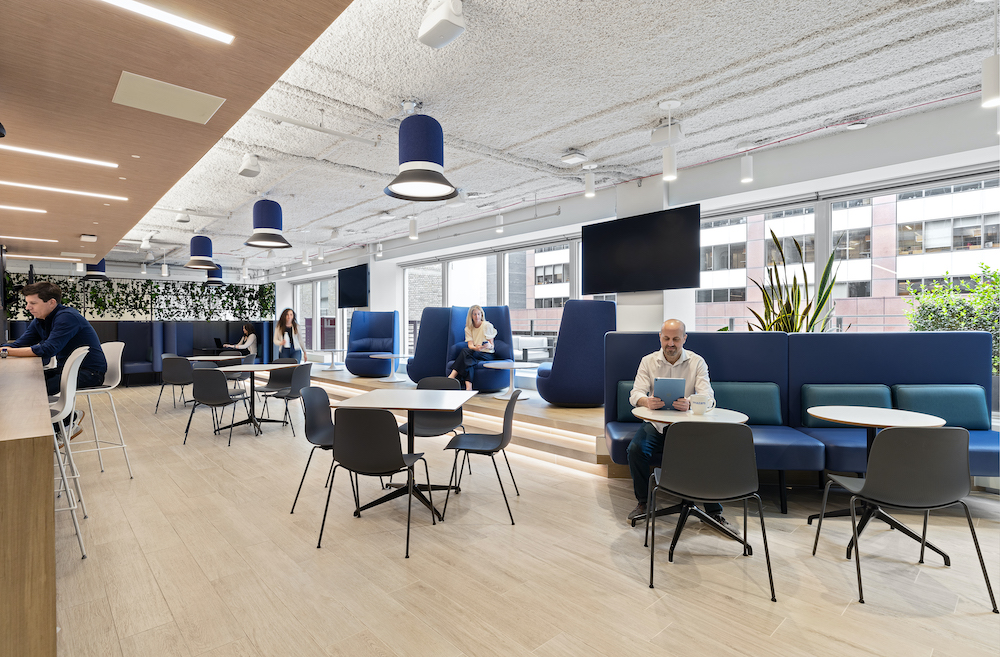
Ted Moudis Associates (TMA), a leading architectural interiors firm specializing in workplace solutions, collaborated with the audit, tax and advisory firm Mazars USA (Mazars) on their newly renovated Manhattan office. Mazars tasked TMA with creating a light, bright and collaborative space for the firm’s 85,000-square-foot, four-floor office space in Midtown, located at 135 West 50th Street.
Project Overview:
- Design Firm: Ted Moudis Associates
- Client: Mazars USA
- Completion Date: December 2020
- Location: New York City, New York, USA
- Size: 85,000 sqft
TMA conducted a thorough workplace strategy and programming effort and determined that an agile workplace model would best suit this organization. With Mazars situated on four floors, TMA’s design team conceived each floor as a series of “neighborhoods” that serve as a home base for specific service lines and operating support groups. These neighborhoods allow employees to access a variety of spaces within a short distance, such as workstations, offices, phone booths, huddle rooms, lounges and open collaboration seating. Team members now have a variety of options to perform day-to-day tasks that cater to their preferred styles of work with greater accessibility to high-use areas — a crucial factor to successful hybrid work models.
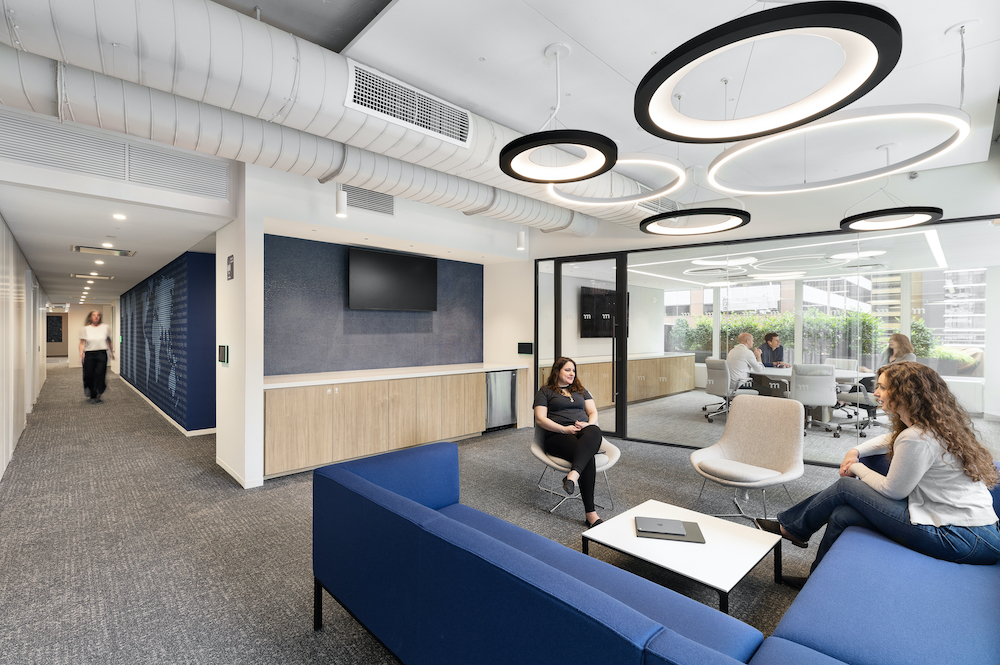
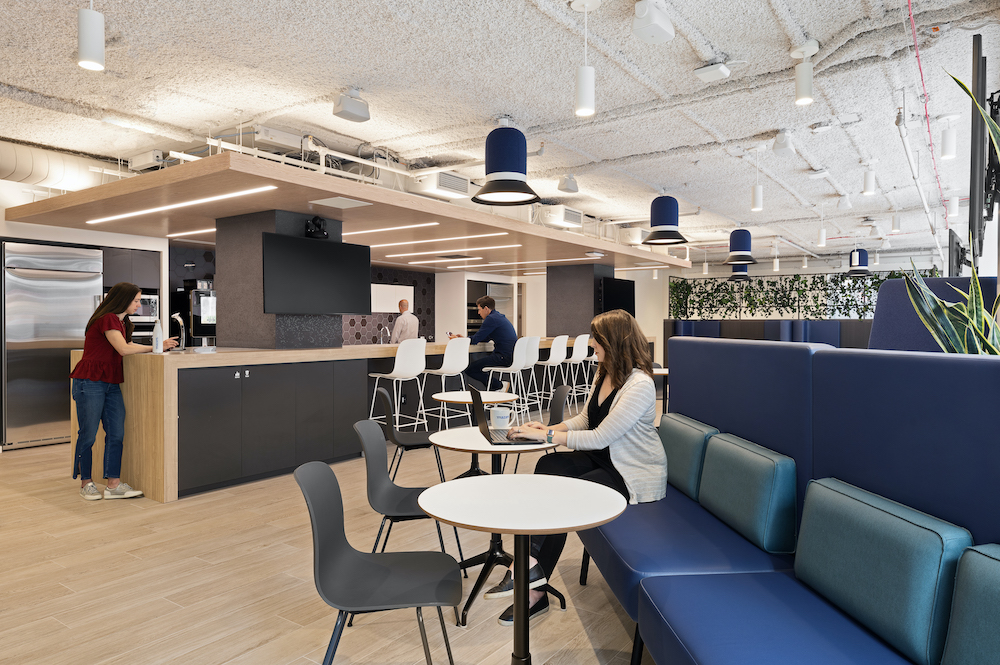
Located on Mazars’ main floor, the workplace’s central hub features open architecture with client-facing gathering areas and amenity spaces to help foster a collaborative environment. These include a large café with multiple seating arrangements and an adjacent outdoor terrace. Two prominent conference rooms are located directly off the café, distinguished by operable walls that can be repositioned to create a larger space for company gatherings. The opposite side of the floor is dedicated to a client reception area, which provides a refined introductory experience for guests.
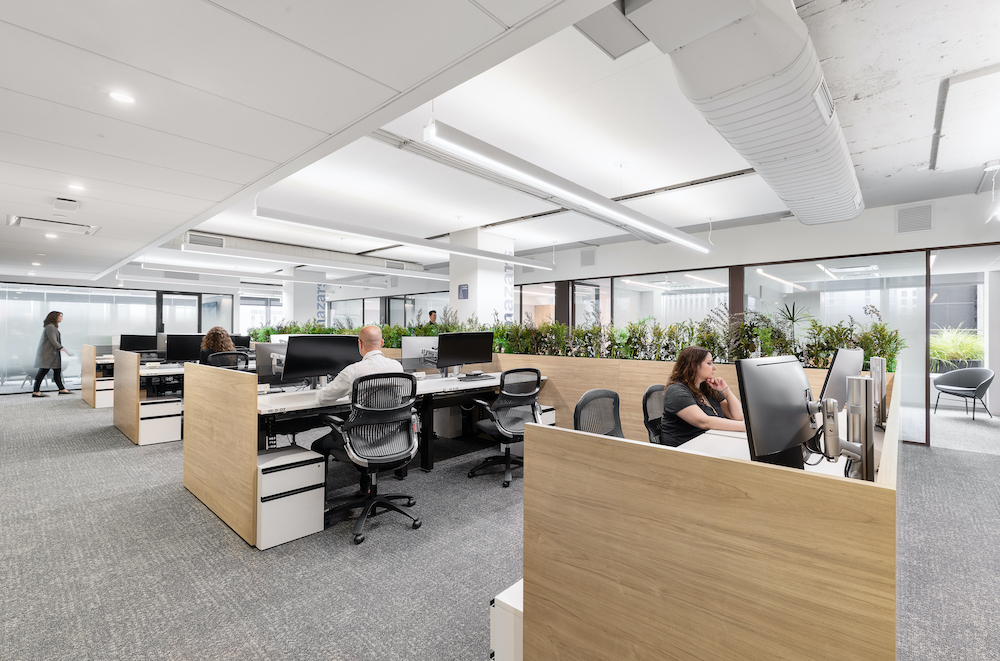
Project Planning
TMA’s change management team executed a 90-day intensive effort of meetings, sessions and surveys with Mazars’ team members to better understand their needs in the workplace. Based on extensive interviews, data utilization and industry best practices, TMA determined that the best way to create a collaborative, welcoming environment for the staff at Mazars was conceiving an agile workplace model.
The staff is composed of various teams over four floors, in which each one serves as a home base for specific service lines and operating support groups for the firm’s different departments. TMA designed each floor as a series of neighborhoods to ensure employees have access to a variety of spaces within a short distance. The neighborhoods include workstations, private offices, phone booths, huddle rooms, lounges and open collaboration seating.
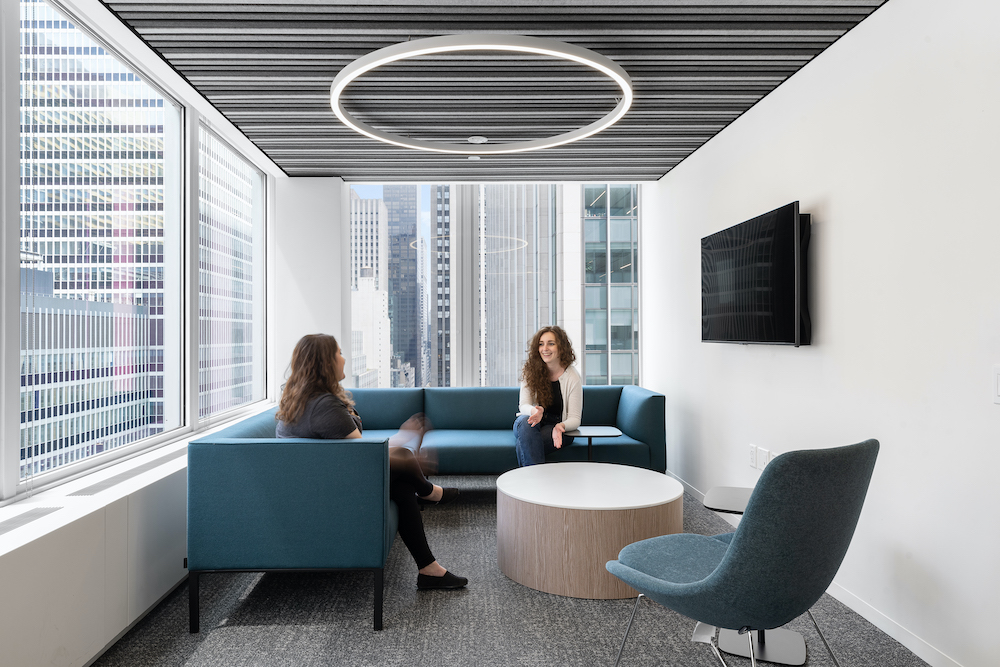
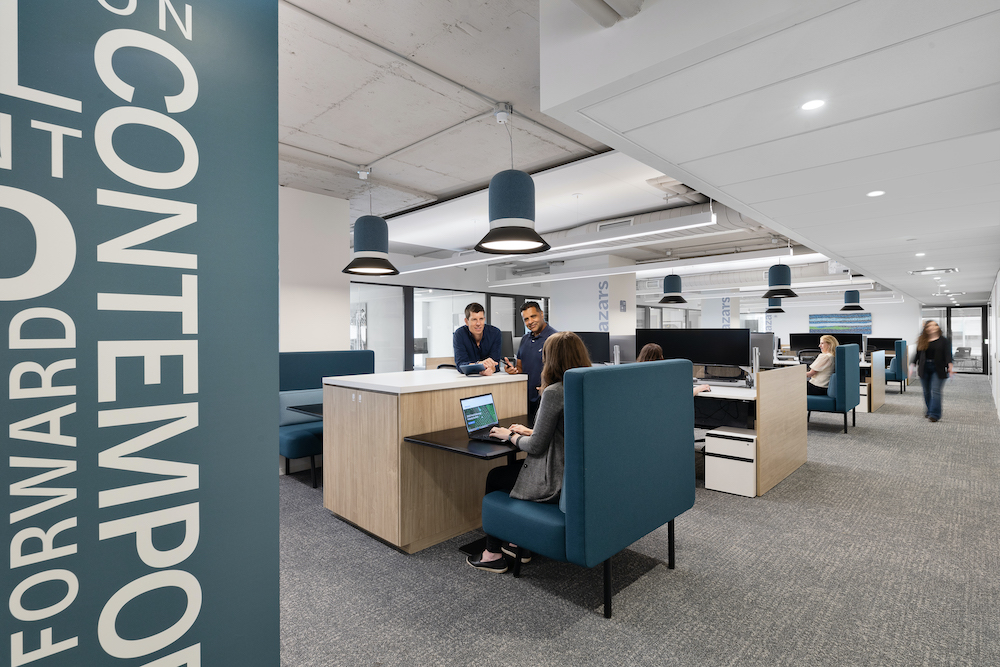
Project Details & Products
TMA incorporated sustainable design elements throughout the space to create workplace solutions built for longevity, productivity and enjoyment. Each floor presents its own signature color based on Mazars’ branded hues, which include blue, purple and green.
The team emphasized biophilic elements such as maximized access to natural lighting from expansive windows, as well as warm wood material finishes and built-in planters alongside the desks. In place of deskside storage cabinets, digital combination code lockers provide the hybrid staff with personal storage. For greater workplace efficiency, sit-stand desks were included in all offices and workstations, which also offer charging stations built into the desks.
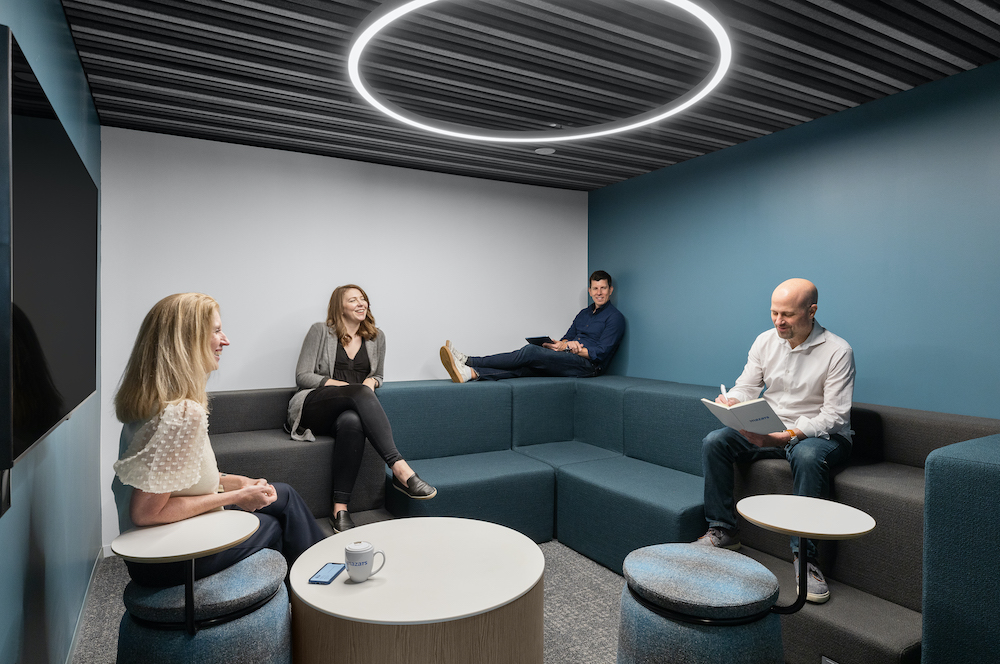
Meeting the needs of the hybrid workforce, TMA crafted meeting rooms with high-quality audiovisual media to advance the firm’s virtual community building. Primary meeting rooms, available in several sizes, are equipped with state-of-the-art video conferencing technologies and collaborative design elements such as writable walls. To foster in-person collaboration, an innovation lab allows team members to gather in a casual, agile setting with the help of moveable furniture and writable boards as well as adequate acoustics and audiovisual technology. TMA’s consideration for high-tech audio and quality acoustics also extends to the podcast room, where recordings take place without interruption to the surrounding workstations.
To address employee use within the workplace, TMA introduced several smart technology systems to monitor use of space. An app-based reservation system supports and tracks data for an unassigned seating model, while power over ethernet lighting reduces overall energy consumption and utilizes sensors controlled by special software. This software tracks data picked up by these sensors, offering valuable insight into the usage and traffic of specific areas and allowing staff to plan ahead for booking desks and collaboration rooms.
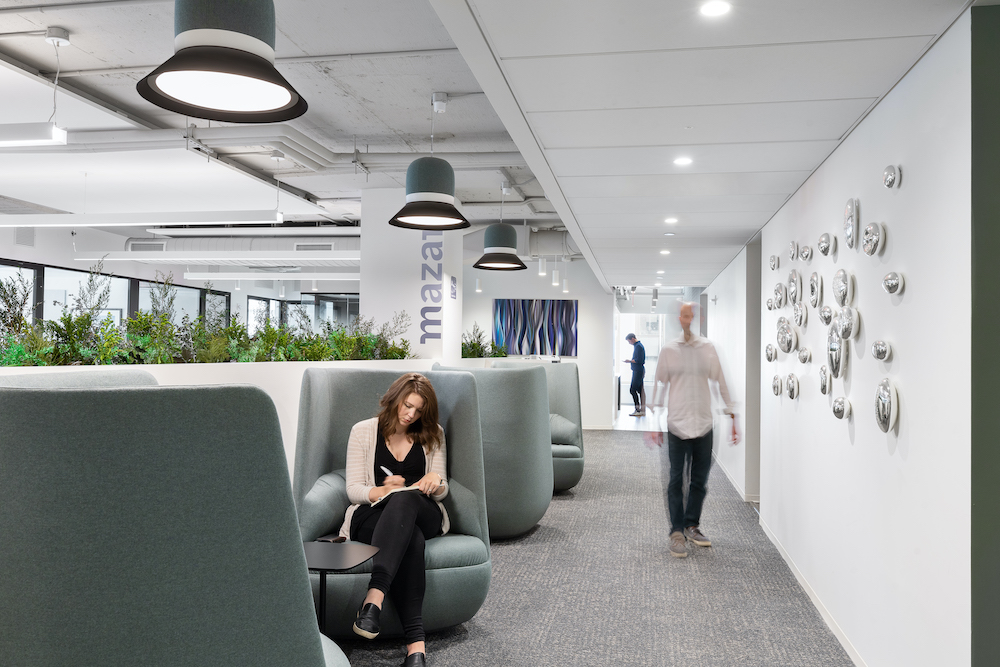
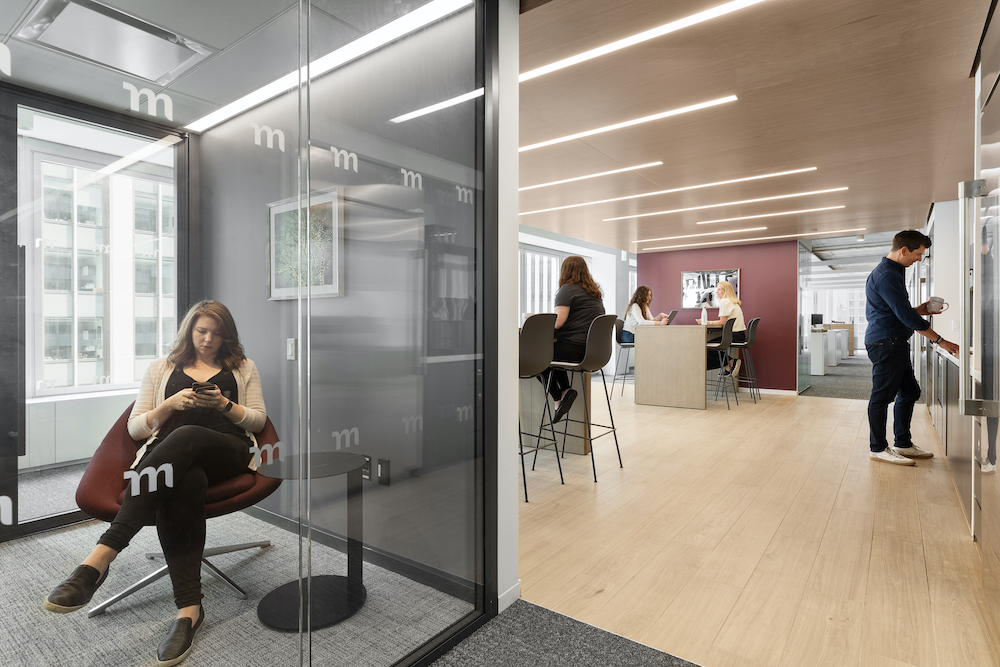
Overall Project Results
As part of TMA’s change management efforts, a series of impact surveys and assessments were circulated to gauge team members’ opinions, feelings and comments following the renovation. Findings from these assessments allowed the TMA change management team to determine metrics for success during and immediately after implementation.
The overall feedback from the Mazars team is overwhelmingly positive. The company’s staff and partners have successfully adjusted to the agile workplace design model. The phone booths and huddle rooms are frequently used by the staff. Additionally, the outdoor terraces are well received and are a favorite destination for the staff during the warm weather months.
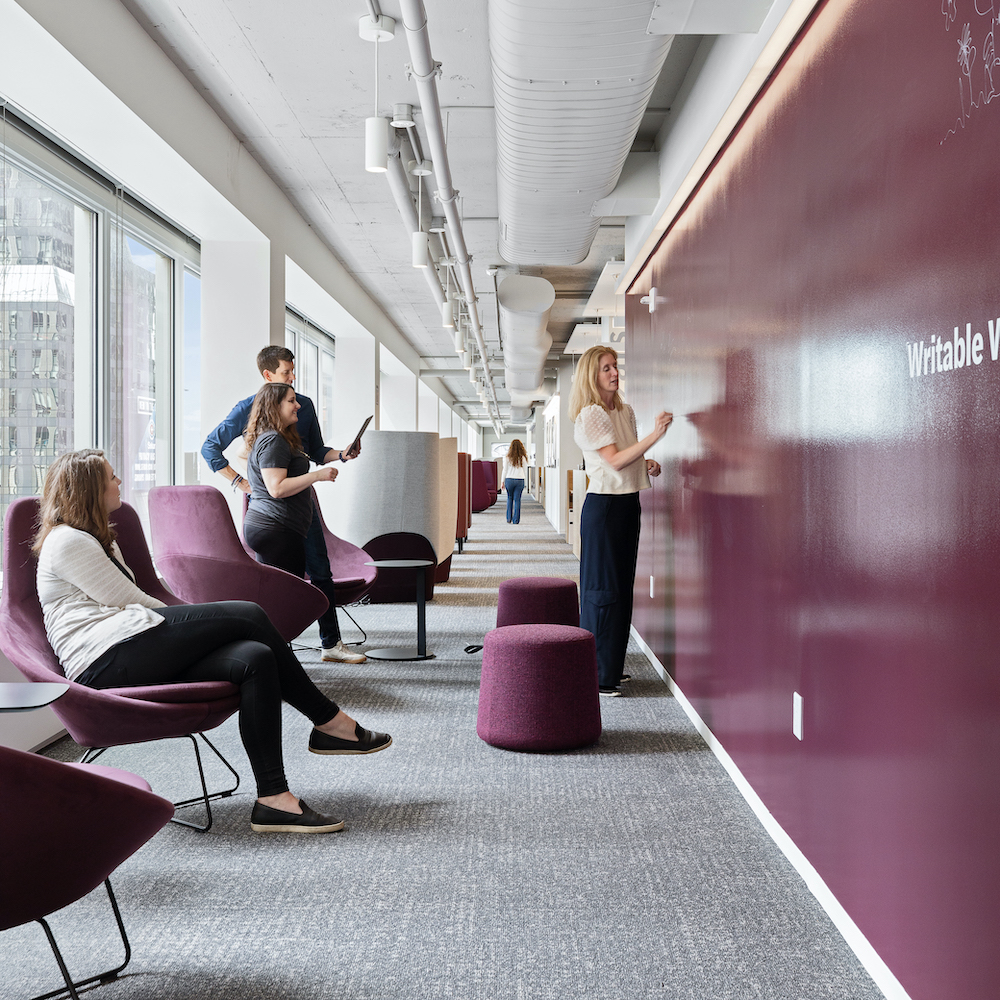
Project Summary
In renovating Mazars’ existing office, TMA also created a space that simultaneously accommodates the realities of today’s hybrid work, while creating a welcoming space for employees returning to the office. The updated office provides enhanced opportunities for collaboration and innovation among team members.
The global pandemic presented a number of challenges while the workplace was undergoing renovations. TMA studied many planning options to comply with social distancing, for example larger desks, additional spacing between desks, collaboration zones and conference rooms. After many scenarios, the design team referred back to their original planning that was designed in a flexible module that allowed for the flexibility needed during the pandemic. This allowed additional seats when needed and create larger conference spacings and web rooms. This flexible layout also supported the company’s social distancing policies throughout this space.
For the Mazars office, TMA designed an agile workspace that gives team members a variety of options to perform day-to-day tasks that cater to their preferred styles of work with greater accessibility to high-use areas. This has proved to be a crucial factor to a successful hybrid model.
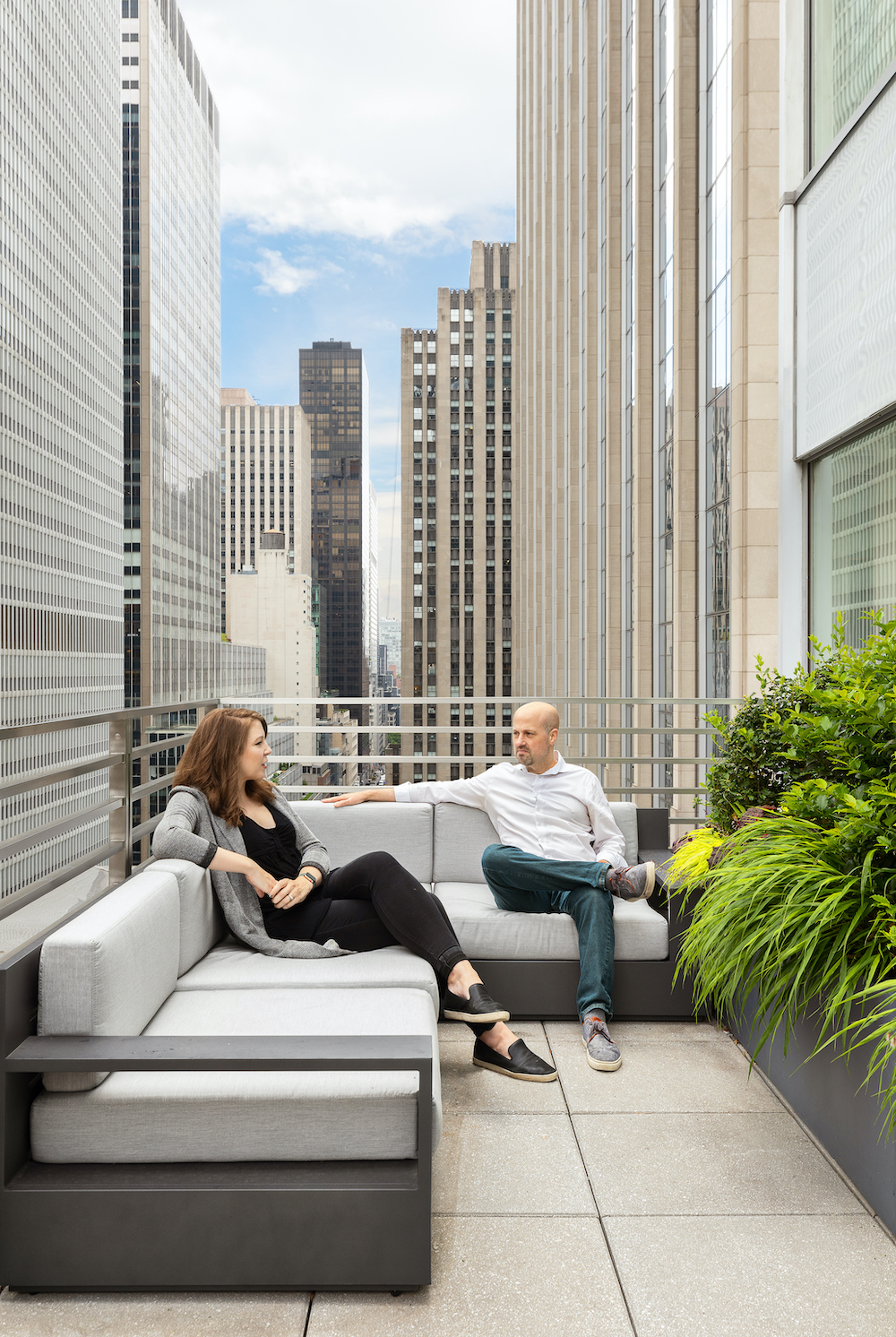
In addition to TMA’s involvement in the architectural interior design process of the Mazars project, it also involved:
- General Contractor: JT Magen & Company
- MEP Engineering: Robert Derector Associates
- Lighting Consultant: Syska Hennessy Group
- Expeditor: Milrose Consultants
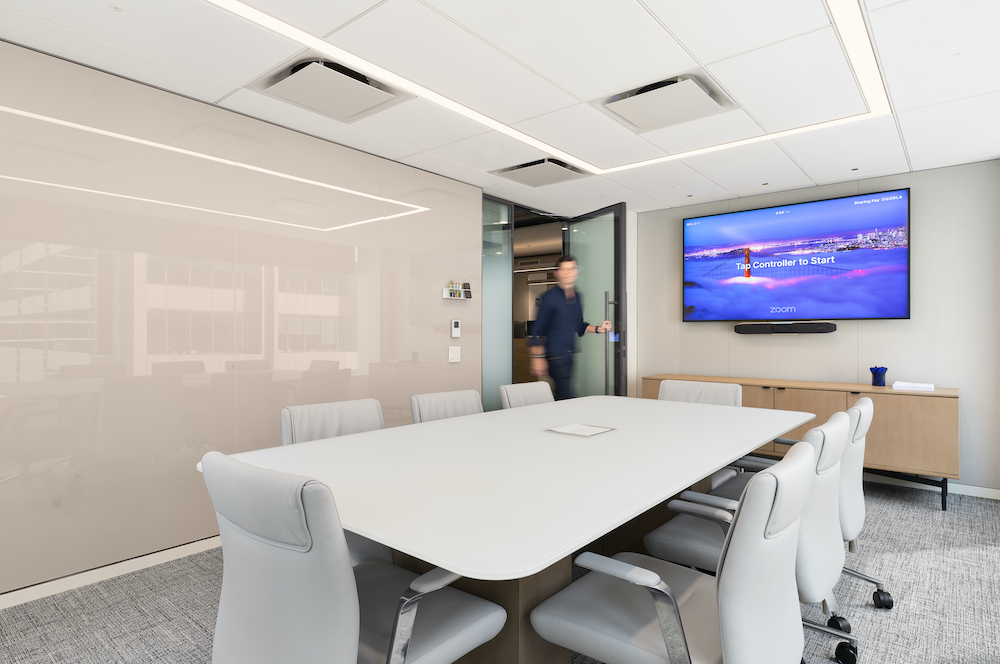
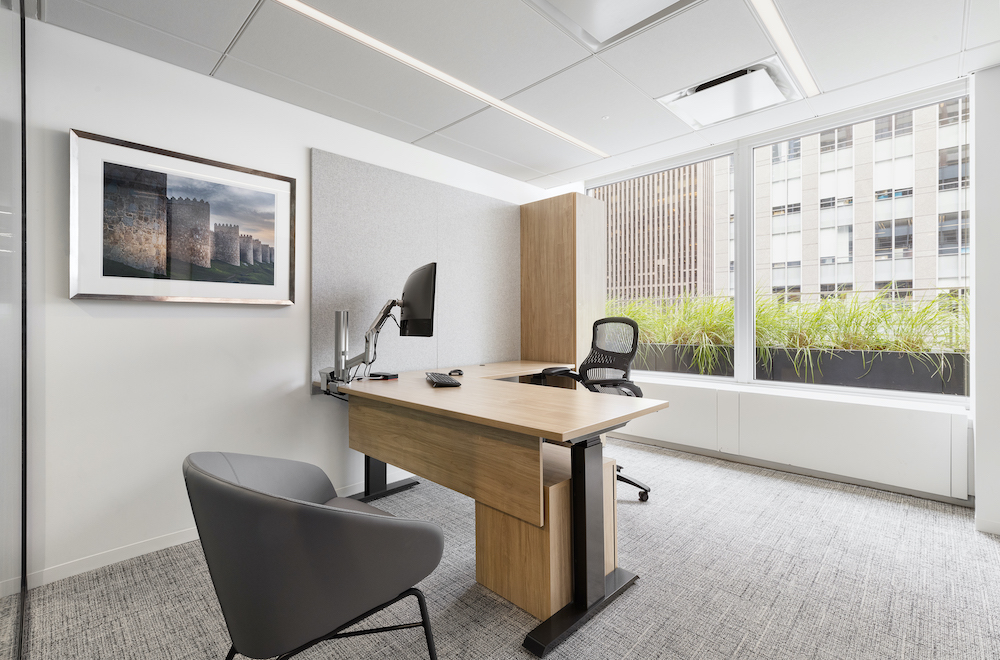
Photography
Michael Vincent Parks / DDreps

